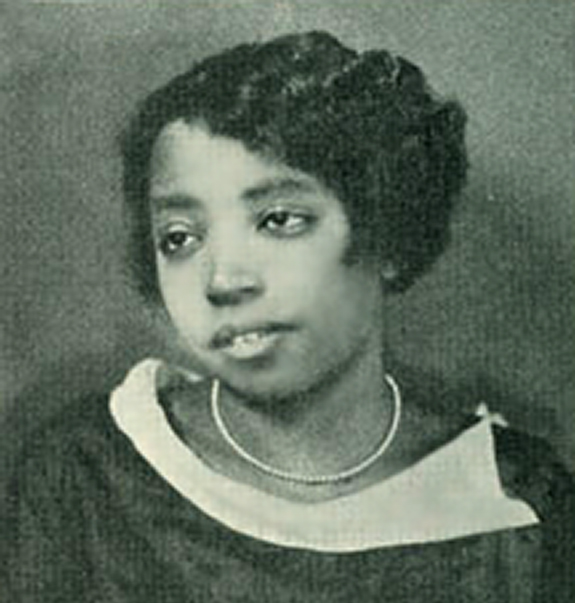Marita Bonner
June 16, 1898 – December 6, 1971
Inducted in 2017
.
Short stories
"The Hands–A Story" Opportunity: A Journal of Negro Life 3 (1925)
"The Prison-Bound" The Crisis 32 (1926)
"Nothing New" The Crisis 33 (1926)
"One Boy's Story" The Crisis 34 (1927: pseudonym: Joseph Maree Andrew)
"Drab Rambles" The Crisis 34 (1927)
"A Possible Triad of Black Notes, Part One" Opportunity 11 (1933)
"A Possible Triad of Black Notes, Part Two: Of Jimmie Harris" Opportunity 11 (1933)
"A Possible Triad of Black Notes, Part Three: Three Tales of Living Corner Store" Opportunity 11 (1933)
"Tin Can" Opportunity 12 (1934)
"A Sealed Pod" Opportunity 14 (1936)
"Black Fronts" Opportunity 16 (1938)
"Hate is Nothing" The Crisis 45 (1938: pseudonym: Joyce M. Reed)
"The Makin's" Opportunity 17 (1939)
"The Whipping" The Crisis 46 (1939)
"Hongry Fire" The Crisis 46 (1939)
"Patch Quilt" The Crisis 47 (1940)
"One True Love" The Crisis 48 (1941)
Essays
"On Being Young–A Woman–And Colored" The Crisis (1925)
"The Young Blood Hungers" The Crisis 35 (1928)
"Review of Autumn Love Cycle, by Georgia Douglas Johnson" Opportunity 7 (1929)
Drama
"The Pot-Maker (A Play to be Read)" Opportunity 5 (1927)
"The Purple Flower" The Crisis (1928)
"Exit–An Illusion" The Crisis 36 (1929)
Collected work
Frye Street and Environs: The Collected Works of Marita Bonner (1987)








